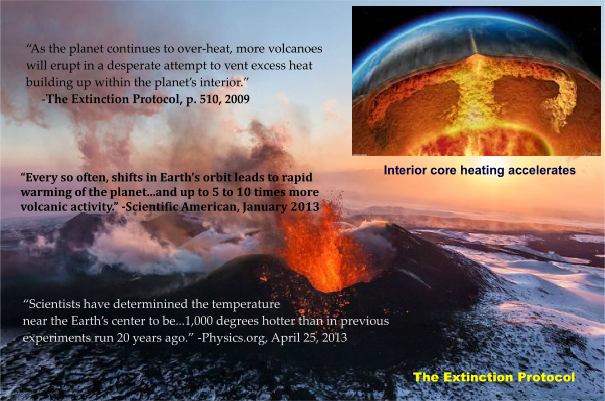skip to main |
skip to sidebar
Posted on December 5, 2013

GEOLOGY – This
year will go down on record, as seeing the most volcanic eruptions
recorded in modern history. The previous number was set in 2010, at 82
volcanic eruptions for the year. The number of volcanoes erupting across
the planet has been steadily rising from a meager number of just 55
recorded in 1990. While most scientists may readily dismiss any
significance to the latest figures and may be quick to say the planet is
just experiencing normal geological activity, it does raise other
concerns about just what may be transpiring within the interior of our
planet. The average number of volcanic eruptions per year should be
about 50 to 60; as of December 5, 2013, we already at 83. Volcanic
eruptions are one way the planet dissipates a dangerous build-up of
heat, magma, and pressurized gases. The planet’s outer core is thought
to flirt with critical temperatures in the range of around 4400 °C (8000
°F). Any rise or major fluctuation in interior gradient could have
profound and disruptive effects on processes whose very properties are
government by convective heat emanating from the planet’s outer core:
magnetic field propagation, tectonic plate movements, sea-floor
spreading mechanics, and mantle plume activity. Mantle plumes or
hotspots are thought to be the central mechanism which fuels the vast
underground chambers of many of the world’s supervolcanoes. –The Extinction Protocol





0 comments:
Post a Comment